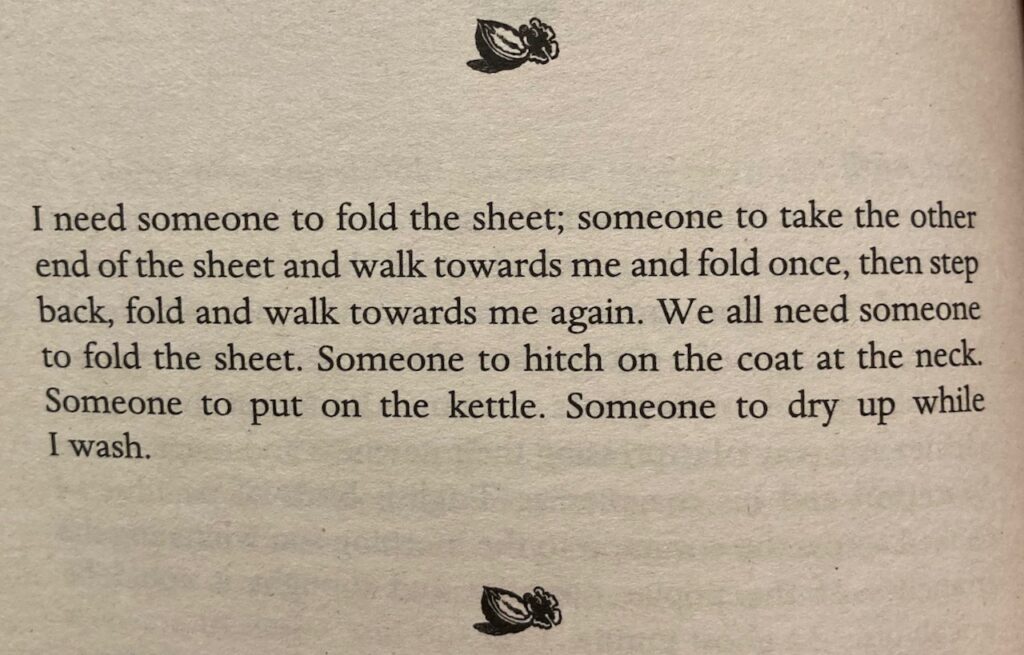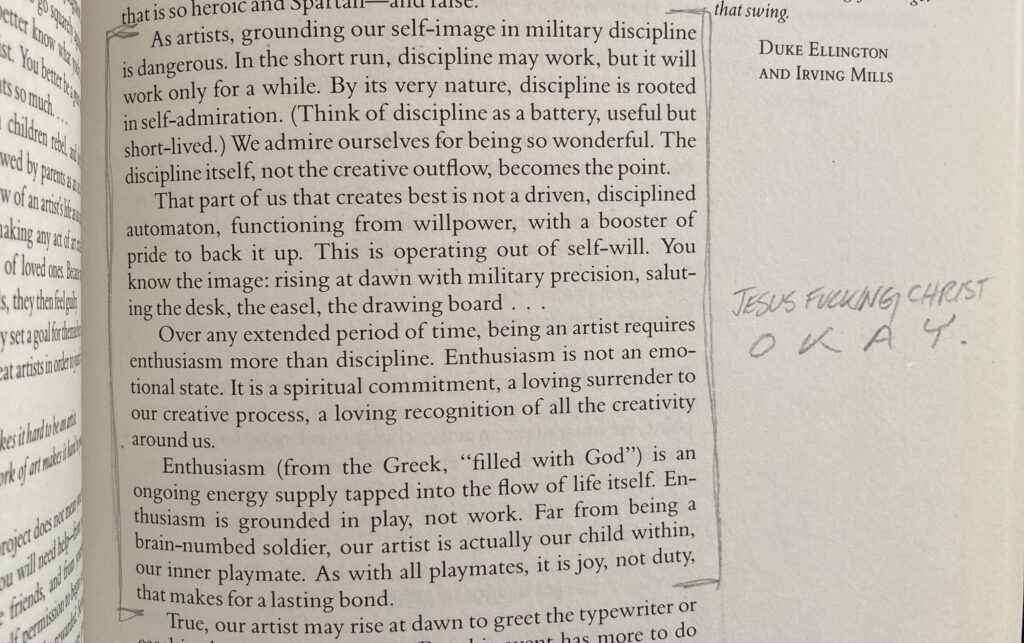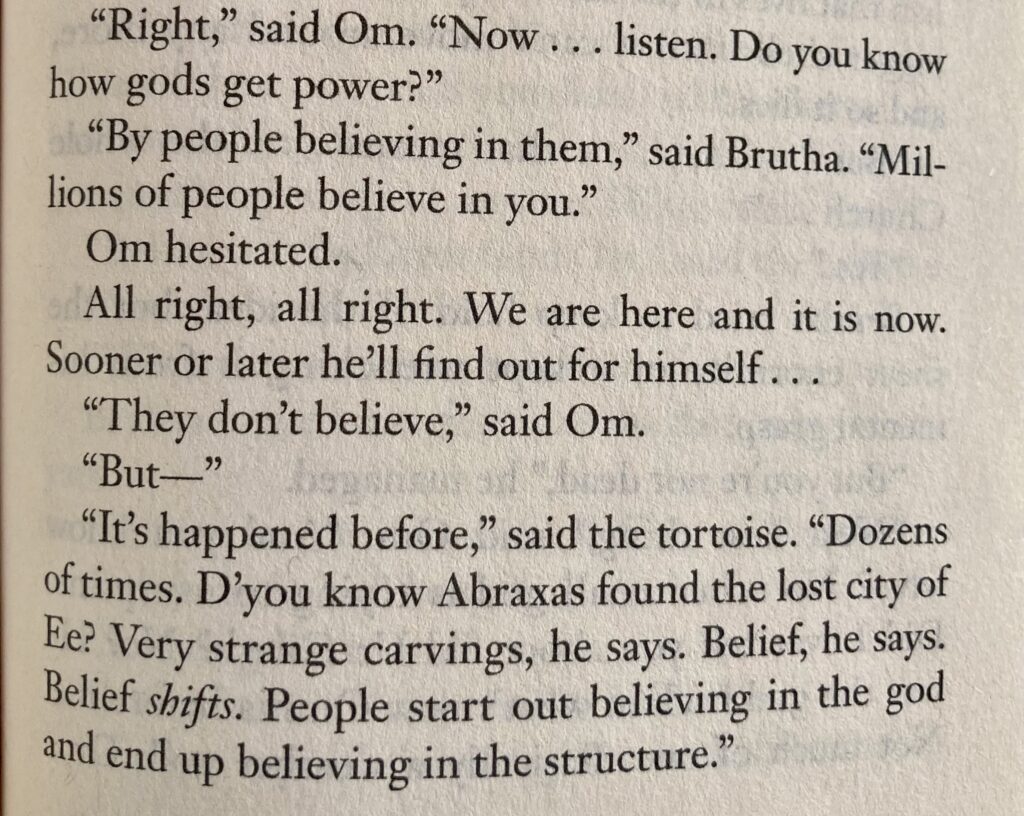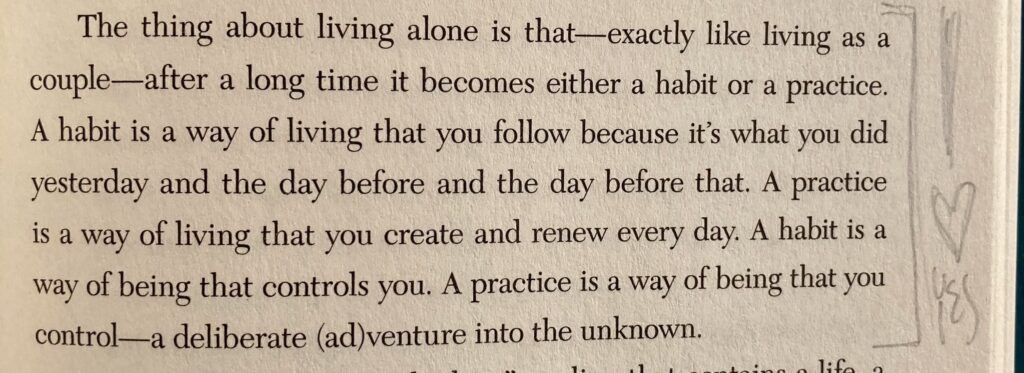Saw a comic that made me laugh in queasy recognition. Didn’t want to link to it on Twitter, so I went hunting. Coni has a blog! But the comic isn’t on the blog. THE COMIC IS NOW ON THE BLOG, RENDERING THE REST OF THIS POST SEMI-MOOT! Coni has a Patreon with lots of comics on it! But not this one. Coni has an Instagram with this comic on it! But the formatting loses a lot in the jump to square panels. So: a Twitter embed.
Two demons 😈✏️ pic.twitter.com/K75T3NbFmC
— Coni Yovaniniz (@kurisquare) November 10, 2022
I don’t say any of the above as a criticism! I do the same thing! There’s some obscure internal logic that dictates when I make the effort to cross-post things and when I don’t. Sometimes it’s about formatting, sure, but other times it’s about tone. Certain comics or posts just fit better in different parts of my online presence.
I’ve wondered with increasing frequency whether it makes the most sense to start consolidating everything on my own site, but the fact is there’s something valuable about maintaining these different tonal environments. I like having Patreon as a space to talk (mostly) about craft and maintaining a creative practice; it keeps my blog free of any pressure to produce “worthwhile” content. Maintaining a little distance helps combat context collapse, keeping certain things within certain circles and keeping those circles relatively small.
(I keep thinking about the era when comics friends would warn that Twitter became unusable for them after they’d surpassed 10,000 followers, a threshold I’ve been over for some time.)
But there’s something else under this: the idea of being a Word Person and/or an Image Person on the internet. Some people certainly play with both (I’m thinking of Robin’s essays), and you could even argue that cartoonist is the definition of a Word and Image Person, but I think the way we treat platforms online splits these categories by necessity. I have split myself.
A lot of this crystalized after I read Alexis Madrigal’s lovely thread on Word People:
I read this thread and think “Yes! That’s me!” Or at least the Me that occupies this particular corner of the web. The Word Person part of my brain is the one that wanted to go to a liberal arts college and get a degree in Something Other Than Art (although I fell at the final hurdle and ended up with one regardless). The Word Person is still reading like it’s her job and keeping a journal and talking too much. She even controls how I read comics (words first, images as a sort of subconscious afterthought), which is a source of much self-judgement. (I know how long those pages take to make!!)
The Image Person struggles to keep up, or speaks in a register that’s harder to hear.
And then there’s the coding angle! Most of the blogging services my internet friends are gushing over these days focus on the written word. Introducing images of all different sizes and formats to the experience of building a website automatically shoots it into a realm beyond my limited technical ken.
Anyway, back to the what-goes-where-ness of platforms. Other Robin had a bit about that in his latest newsletter:
It’s not enough to make something and post it online; you must also inject it into some channel that will carry it to people. The web itself doesn’t do that; you need an extra layer, some reservoir of attention and/or curiosity, whether it’s Google, the blogosphere (RIP), StumbleUpon (RIP), Twitter (RIP) … hmm, there seem to be a lot of dead channels out here.
Back in the 2000s, I thought I knew things about distribution, about attention and networks — but I didn’t really.
It was, honestly, the experience of publishing a book with FSG that showed me what distribution really looks like, and taught me that you just cannot be starting from scratch every time. You need supply chains — not only (or even primarily) physical, but commercial and intellectual. Emotional, even.
I love the idea of a reservoir of curiosity coupled with an emotional supply chain. And those features don’t need to be built! They live in the people I want to spend time with! Curious people who maintain relationships over time and space, even when those relationships lie fallow for a spell.
I don’t measure the health of my friendships by whether or not we speak every day. Why should I then transfer that pressure onto my internet spaces?



